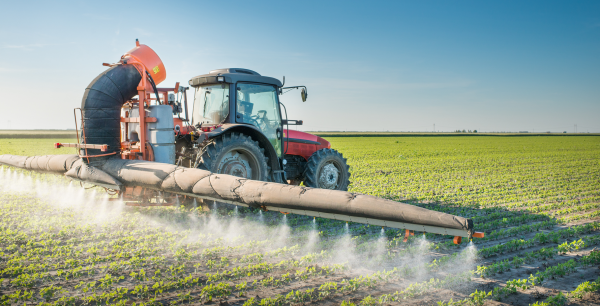L’Europe doit attendre une initiative citoyenne concernant le glyphosate
« Pas de prolongement glyphosate avant traitement de l’initiative citoyenne »
Le Parti pour les Animaux réclame de la Commission européenne qu’elle ne prolonge pas la licence pour la pesticide agricole glyphosate, avant que l’initiative citoyenne européenne ‘Ban Glyphosate’, récemment officiellement enregistrée, ait complètement traitée. La députée européenne Anja Hazekamp veut des garanties de la Commission européenne que l’initiative sera sérieusement prise en compte au moment de décider sur le glyphosate.

« La confiance en UE a été tombée à zéro pour de nombreux citoyens. Bruxelles ne peut pas se permettre d’ignorer les initiatives des citoyens, » a déclaré députée européenne Anja Hazekamp.
La licence actuelle de l’UE pour le glyphosate expire au début de 2018 et coïncide avec la durée de l’initiative citoyenne ‘Ban Glyphosate’, qui a démarré officiellement le 25 janvier. Les auteurs de l’initiative ont douze mois pour recueillir au moins 1 million de signatures. En cas de succès la Commission européenne devra organiser une audition et donner une réponse motivée à la demande d’interdire le glyphosate. « Il serait irrespectueux et antidémocratique si la décision sur le glyphosate était prise au moment de l’audition, » dit Hazekamp.
Selon le secteur de l’Organisation mondiale de la Santé, spécialisé en recherche de cancer, le CIRC, le glyphosate est probablement cancérogène. Il y a aussi des indications que le glyphosate a des effets perturbateurs hormonaux. Néanmoins la Commission européenne a décidé en juin 2016 de prolonger de dix-huit mois la licence de glyphosate. Au début la Commission a même voulu prolonger la licence de quinze ans, mais grâce aux protestations de divers pays de l’UE et des députés européens cela a été empêché.
Le Parti pour les Animaux fait objection, aussi bien à l’Assemblée nationale néerlandaise qu’au Parlement européen, à la tenue sur le marché du glyphosate.
Le glyphosate est un pesticide agricole et l’ingrédient principal de Roundup. Roundup est utilisé par les agriculteurs, gouvernements et les individus comme herbicide. En raison de l’utilisation massive de nombreuses personnes et de nombreux animaux entrent en contact avec le poison. Une recherche de 2013 montre que 63 pour cent de tous les Néerlandais avaient les traces de glyphosate dans leur urine.
“No extending of glyphosate license until citizens’ initiative is fully considered”
The Party for the Animals demands that the European Commission does not extend the European license for herbicide glyphosate until the recently officially registered European citizens’ initiative ‘Ban Glyphosate’ has been fully considered. MEP Anja Hazekamp wants the European Commission’s guarantee that the initiative will be taken into serious account with regard to their decision on the glyphosate license.

“Many citizens have lost all faith in the European Union. Brussels cannot afford to ignore citizens’ initiatives,” according to MEP Anja Hazekamp.
The current EU glyphosate license grant will expire at the start of 2018, coinciding with the end date of the citizens’ initiative ‘Ban Glyphosate’, which was officially launched on 25 January. The proposers of the initiative have 12 months to collect one million signatures. If they succeed, the European Commission will be forced to organise a hearing and give a fully reasoned response to the request to ban glyphosate. “It would be disrespectful and undemocratic if a decision on the glyphosate license is already reached at the time of the hearing,” says Hazekamp.
The section of the World Health Organisation that specialises in cancer research, IARC, has classified glyphosate as a probable carcinogen. In addition, there are indications that glyphosate is an endocrine disrupter. Nevertheless, in June 2016 the European Commission decided to extend the EU license for glyphosate by 18 months. Initially, the Commission even planned on extending it for 15 years, but this was avoided due to protests from several EU countries and MEPs.
The Party for the Animals has objected to continued placing on the market of glyphosate in both the Lower House and European Parliament.
Glyphosate is an agricultural toxin, its main ingredient Roundup. Roundup is used by many farmers, governments and individuals as a herbicide, and as a result of this mass use, a lot of people and animals come into contact with the toxin. A 2013 research showed that 63% of the Dutch population had traces of glyphosate in their urine.